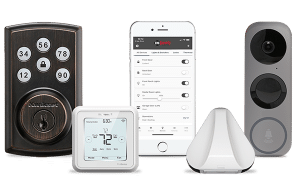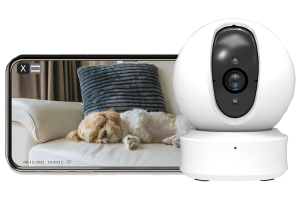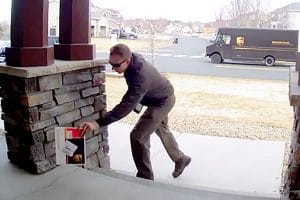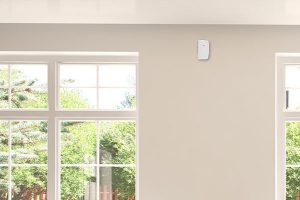Your cart is currently empty!
Month: November 2022
-
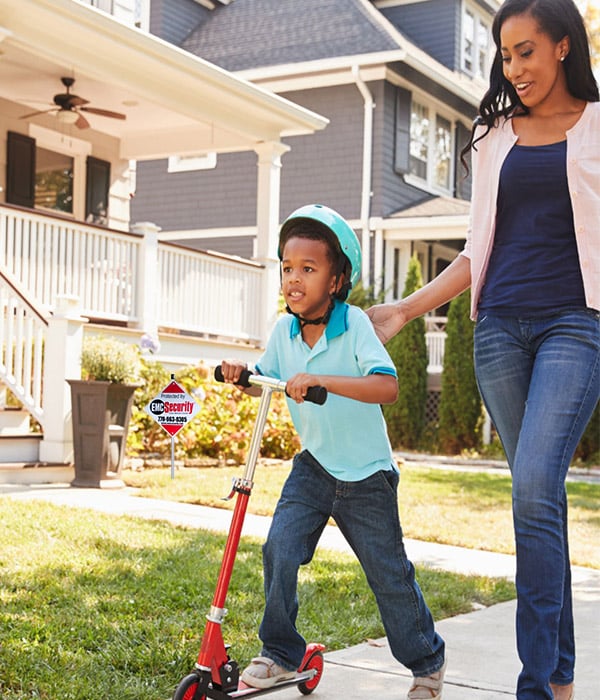
What features to look for in home security
When you’re looking for a home security system, it’s important to take into account all of the features that are available. Not all systems offer the same features, so it’s important to compare your options and find one that has everything you need. This will help keep your family safe while also offering peace of mind as you go about your daily routine.
Here are some of the most important features to consider when shopping for home security:
Your home security system will protect your family, pets, home and valuables.
The most important features to look for in a home security system are:
- Security monitoring
- Easy to arm/disarm your system and monitor from anywhere
- Add new users with ease
- Customization options
- Protection for your family, pets, home and valuables
- Professional monitoring
It’s important to choose a monitoring service that has 24/7 professional monitoring. If you have a fire or intrusion, you want someone on the phone right away to dispatch the appropriate authorities and help you get your home back in order.
A reputable company will have a wide selection of ways to communicate with you about your system and alarm signals:
- Phone call notifications
- Text notifications for alarms to help prevent false alarms
- Text and emails for trouble signals such as power outages and low batteries
You should also consider a system with a cellular connection. This is the most reliable type of home security, and it can be used anywhere in the world.
If you have to set up your system remotely or in an area that doesn’t have power, then this is very helpful because it will still work for you regardless of what happens to your home’s electricity or Internet connection.
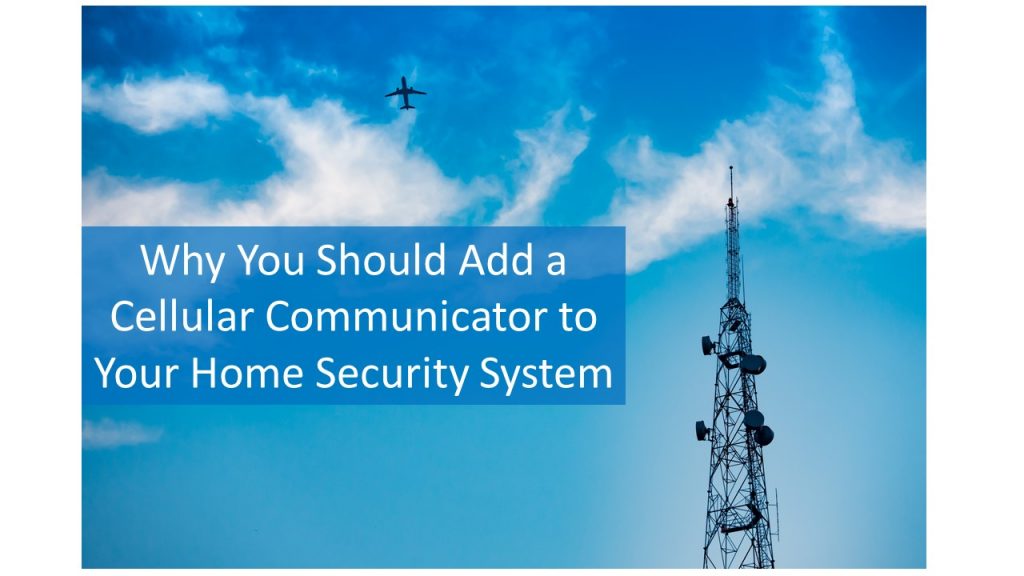
Life saftey with environmental sensors are one of the best reasons to go with a smart security system. They can be used to detect anything from carbon monoxide to smoke, as well as water leaks and temperature fluctuations.
Some of these sensors send alerts to your phone when there is a problem, so you can take action before it becomes much more serious. For example, if you have a carbon monoxide detector in your home and it detects high levels of CO gas in the air, it will send an alert letting you know that something needs attention (like changing out your heating system).
Video doorbells and cameras are best for monitoring your front door, but they can also be used to monitor other areas of your home.
Video doorbells can be used with other smart home devices to trigger various actions. For example, if you get a notification that someone rang the doorbell while you were away from home, it could automatically turn on lights or play music as a welcoming signal.
Similarly, if your camera detects an intruder in your house while you’re out running errands, it could send a text message to your phone so that you’ll know about it before returning home.
You should also look for smart home capabilities. Smart homes are built to communicate with other devices and systems in the home, like your thermostat or lights. Security companies are catching on that customers want this kind of technology in their security systems too. The result is a more comprehensive system that can monitor your home’s lighting and temperature as well as identify motion, sound and other activity around it.
Home security is a huge responsibility, but it doesn’t have to be complicated. With the right system, you can protect your family and valuables with peace of mind. STake a look at our best home security systems and find one that fits your needs—and budget!
-

Importance of Working Smoke Detectors
Smoke detectors are devices that are installed in a home for the purpose of detecting smoke, which occurs when there is an increase in temperature.
This is important because it indicates a fire, which can be potentially dangerous to your family if not handled properly. With a working smoke detector in place, you can easily detect a fire and take action to put it out before it spreads even further.
In this blog post we will discuss:
The importance of having working smoke detectors; What types of fires should cause alarm; The importance of replacing batteries regularly; Why carbon monoxide alarms may be necessary as well; How to install them and test them for accuracy regularly; How cleaning your home’s air vents can prevent fires from starting; And more…
Over 3,000 people die each year in house fires in the United States
More than half of fire-related deaths occur in homes without working smoke detectors.
Working smoke detectors save lives. The U.S. Fire Administration reports that more than half of fire-related deaths occur in homes without working smoke detectors.
People who live in homes with working smoke alarms are 3 times more likely to survive a home fire than those who don’t have one.
There may be as many as 200,000 annually that are reported by emergency services in the United States alone.
According to the U.S Consumer Product Safety Commission (CPSC), about 3,300 fires occur each year that cause an average loss of 15 lives and $44 million in property damage nationwide (2009). These fires resulted from unidentifiable sources such as unattended cooking or heating equipment use; cigarette smoking; careless disposal of smoking materials; discarded matches or lighters; burning candles/incense/flowers etc.
Smoke detectors save lives.
Smoke detectors protect property.
Smoke detectors save money.
The NFPA reports that one working smoke detector is fine for a home with no more than two bedrooms. You need at least one detector on every level of your home.
Guidelines for smoke detectors
- One should be placed near the stairwell leading up from the basement, because this is where people tend to enter or exit your home.
- Two should be installed in each bedroom on different walls (one close enough to your bed so that it wakes you up if activated). If you share a bedroom with someone else, place another one right outside each bedroom door (so there are three detectors total around each shared bedroom).
- One should go near the kitchen stove and another in its general vicinity (it doesn’t matter much where it goes here since most fires start within 6 feet of an open flame). The same goes for living room furniture: place one at least 6 feet away from any open flames like candles or fireplaces. For extra safety measurers, use motion detectors that only turn on when someone walks into their range—this will ensure they don’t always stay on without anyone noticing as they walk by during normal hours of day/night activities (and thus save energy).
- You must be able to hear the smoke alarm from all areas of your home.
- You must be able to hear the smoke alarm from all areas of your home.
- Place smoke detectors in every bedroom and on every level of the home, including the basement and attic.
- Make sure you install them near sleeping areas and not too close to kitchen appliances that may produce cooking odors or steam, which could cause false alarms.
More…
- Smoke alarms should be tested monthly and batteries replaced every six months.
- Replace batteries on all your smoke alarms every six months. An easy way to remember is to change batteries when the time changes twice per year.
- Don’t wait for the beeping to start before changing a battery—you should replace them as soon as they begin to show signs of weakness (typically after one year).
Why EMC Security monitored smoke detectors are the best option.
With EMC Security professionally monitored smoke detectors, while you’re focused on getting everyone to safety, EMC Security is contacting the fire department. As soon as we recieve the fire alarm signal, a call is made to authorites – saving ALOT of time . Additionally, if you are not in the home, the fire department will still be called, after all, if you don’t hear the smoke alarm, it doesn’t matter how many you have. Monitored smoke detectors start at just $79 each.
Let EMC Security do the heavy lifting for you – while you focus on getting everyone to safety. Monitor for fire at no additional monthly cost.
We hope that you are well-informed on the importance of smoke detectors and how they can help to save lives. If you have any questions or concerns, please do not hesitate to contact us.
-
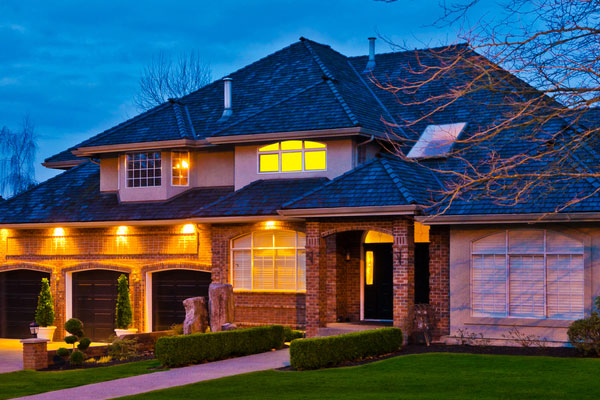
How to protect yourself against crime in your neighborhood
Yes, some cities have higher crime rates than others, but even in the worst neighborhoods you can take steps to protect your property from theft and other crimes.
Here are some tips for keeping your home safe:
1. Pick up the newspaper in your driveway so it doesn’t alert criminals that you’re not home.
Picking up the newspaper in your driveway may seem like a simple gesture, but it can actually help you protect yourself against crime. Criminals are often looking for signs that no one’s home—and newspapers are a dead giveaway of such. By picking up your newspaper and putting it inside, you’re telling criminals that someone is at home and will notice suspicious activity around their house (or, more likely, apartment building). This is especially important if you live in an area where newspapers are delivered by a third party (such as a paperboy) rather than directly from the publisher (in which case there’s usually some sort of sticker on the door letting neighbors know that they don’t need to pick up their own paper).
2. Do not leave spare keys outside—that includes hiding them under doormats or other places where they can easily be found by criminals!
3. Keep your shrubs trimmed so burglars can’t hide behind them.
4. Keep your shrubs trimmed so burglars can’t hide behind them.
5. Don’t have shrubs that are too close to the house or windows.
Instead, leave space around the house so that if a burglar tries to hide behind it, they will be visible from inside or outside of your home.
6.Don’t leave a spare key outside, especially in an obvious place like under your doormat.
If you want to avoid being burglarized, the best thing you can do is make sure that there’s nothing for a thief to take. If your keys aren’t where they’re supposed to be, then it doesn’t matter how much cash or jewelry you have stashed at home: no one will be able to get in.
That said, here are some basic precautions anyone can take:
Don’t leave keys in your car or on the seat
Don’t leave keys in your mailbox (or any other public place)
Don’t leave keys under a mat (or anywhere else obvious)
Don’t leave them in your glove box while driving around town
Make sure all your windows are closed and locked if you’re going out of town.
If you’re going out of town, make sure to lock all your windows and doors. It might seem unnecessary, but remember that criminals like to take advantage of empty houses. You don’t want an opportunistic thief going through the contents of your home while you’re gone.
Even if you’re just planning on being away for 24 hours or so, it’s important to protect yourself against crime by locking up before leaving. Thieves may think nothing of breaking into a house that looks as if it isn’t occupied—even if they are not able to get in right away. Your best bet is always to take steps beforehand so as not put yourself (or anyone else) at risk when returning from vacationing or business trips.
Don’t keep your valuables hidden in the same spot around the house. It’s a common sense rule, but some people don’t follow it. If you keep all of your valuables in the same spot around the house, then it becomes much easier for criminals to grab them and run. Keep them hidden in different rooms or areas of your home, preferably somewhere that isn’t obvious to anyone who might be casing the joint. You should also consider keeping them in different spots on any given shelf—e.g., if someone finds one hiding place, he’ll be less likely to look elsewhere if there’s another one close by.
Don’t leave your garage door open while you’re running errands or working in the yard. Leaving your garage door open while you’re home is a common mistake. But many burglars prefer to work when homeowners are away from their homes, so leaving the garage door up even for a few minutes could mean giving them an easy opportunity to break in.
If you need to go out for errands or run other quick errands around the house, shut and lock your garage door behind you. That way, if thieves happen to see your car parked in the driveway and notice that your garage isn’t closed, they won’t know what’s waiting for them inside—and they may move on to another area instead of risking confrontation with an armed homeowner who could be nearby.
For true peace of mind, consider installing a home security system, even a basic one.
If you’re not already using a home security system, consider installing one. EMC Security can help you choose the right system for your needs and budget.
A basic home security system is simple to set up and easy on your wallet—usually just a few hundred dollars per year.
If you think an intruder might be coming into your home, having a monitored security system means that the police will contact you as soon as motion is detected in your house or yard. If there’s no response from you after 30 seconds (or another predetermined time period), they’ll contact dispatchers who can send officers out to check on the situation.
-
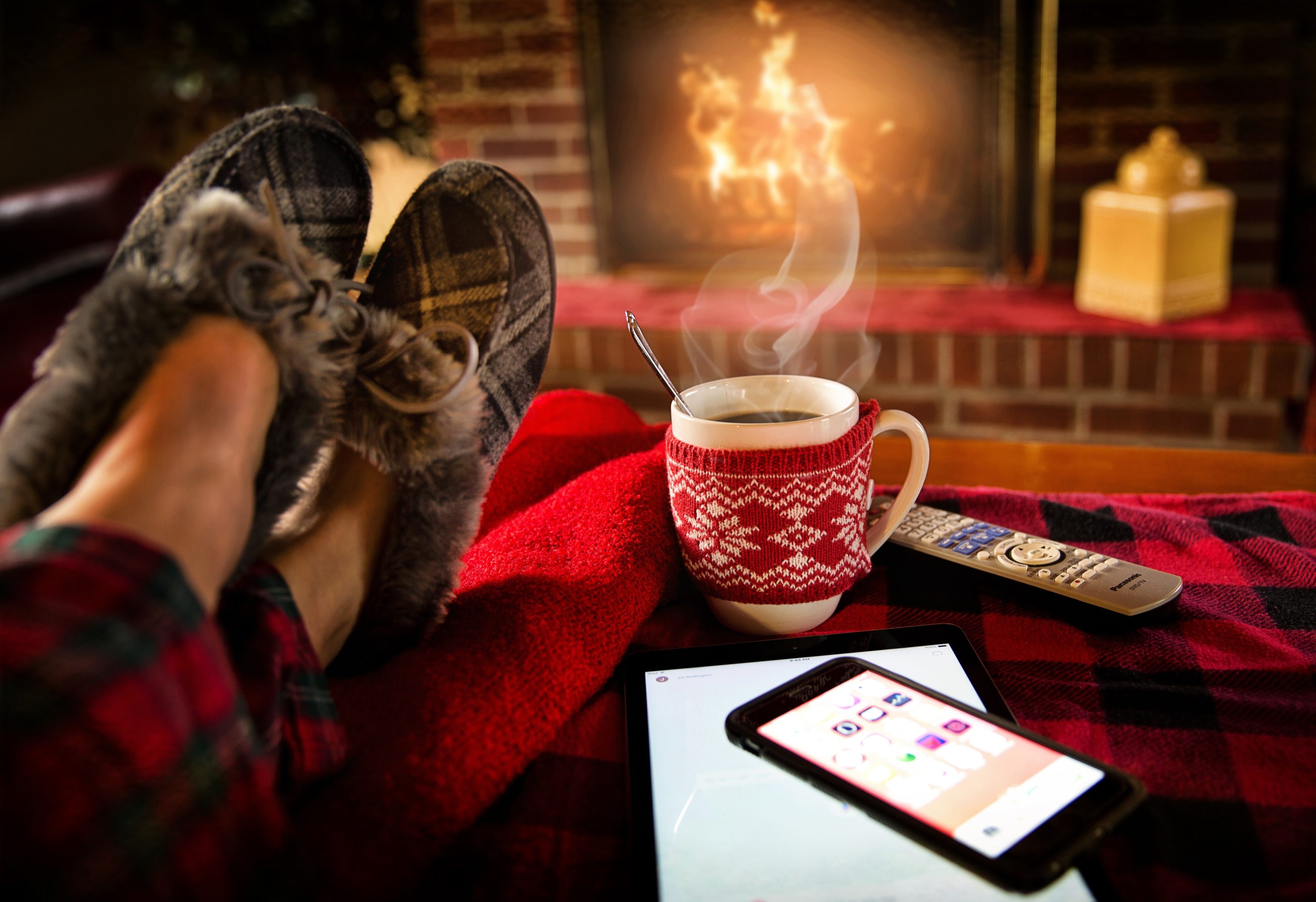
12 Days of Holiday Safety
The holidays are a time for family, fun, and celebrations. But if you’re not careful, they can also be a time for accidents and injuries. From fires to falls, there are many potential hazards in the home during the holiday season.
That’s why we’ve put together this list of 12 days of holiday safety tips to help you keep your home safe and accident-free this holiday season.
Day 1: Check your smoke alarms and carbon monoxide detectors. Make sure they are working properly and have fresh batteries. Test them by pushing the test button monthly. Many homes and lives are at risk because the smoke detectors were out of batteries.
Day 2: Keep candles away from flammable materials like curtains, furniture, or Christmas trees. Never leave burning candles unattended. Avoid using decorative candles altogether and opt for battery-operated LED candles instead.
Day 3: Inspect your Christmas tree for signs of drying out or needle drop before putting it up. Keep the tree watered and away from heat sources like fireplaces or vents to prevent it from drying out too quickly. When the tree starts to drop needles, it’s time to get rid of it.
Day 4: Don’t overload electrical outlets with multiple plugs and extension cords. This could cause a fire hazard. Use surge protectors instead of extension cords whenever possible. If you must use extension cords, make sure they are not damaged in any way and are rated for the amount of electricity they will be carrying.
Day 5: Prevent accidental fires by making sure all embers are extinguished before going to bed or leaving the house. Never leave fireplaces, wood stoves, or space heaters unattended when in use. Keep a fire extinguisher within reach in case of an emergency.
Day 6: If you’re using a real Christmas tree, make sure it is at least 3 feet away from any heat source like a fireplace, radiator, or space heater to prevent it from drying out and becoming a fire hazard. If you have a fake tree, look for the label “Fire Resistant.” This does not mean the tree won’t catch on fire; it just means it is less likely to do so than other artificial trees without that label.
Day 7: Bring in fresh air by opening windows when cooking or using the fireplace to prevent carbon monoxide buildup in the home. Install carbon monoxide detectors on each level of your home and check them regularly to make sure they are working properly.
Day 8: Keep wrapped gifts out of reach of small children who might be tempted to open them early! Store them in a closet or on high shelves until it’s time to put them under the tree.
Day 9: Choose electric lights instead of real candles when decorating your home for the holidays. If you must use real candles, make sure they are placed in sturdy holders and kept away from flammable materials like curtains or paper decorations. Never leave burning candles unattended!
Day 10: Be extra careful when cooking during the holidays as this is one of the leading causes of house fires. Never leave food unattended on the stovetop or in the oven—stay in the kitchen while cooking! Keep a close eye on deep fryers as well; if they start smoking, turn them off immediately and call 911 if necessary.
Day 11: Keep walkways and stairs clear of snow and ice to prevent slips and falls . . . two more leading causes of injuries during wintertime! Also make sure your sidewalks and driveway are well-lit to avoid trips and falls in the dark evening hours of the day.
Day 12: Use your security system! EMC Security will only receive an intrusion signal when it’s armed. Help prevent regrets this holiday season.
We hope these tips help you have a safe and enjoyable holiday season! From all of us here at EMC Security, Happy Holidays!
-

Boost Home Safety with Cameras
Cameras are a great way to make your home safer, but it can get overwhelming. To help you find the right cameras for your needs, here’s a rundown of the features you should look for:
There are so many security camera options, the features can fill a book. To narrow your search, start with the categories below.
Cameras are an important aspect of home safety. They can be used both as security devices and as surveillance tools, depending on your needs. If you’re looking for indoor cameras, there are many different options to choose from: wireless or wired, color or black-and-white. There are also outdoor camera options that will help keep your home safe from intruders—or at least give you some peace of mind about what’s happening outside when you’re not around.
Many people use cameras to monitor their homes while they’re away so they know who has been coming into their house during the day while they work or go out at night after everyone has gone to bed. Other people use them primarily as a way of making sure their loved ones are safe; if a camera detects something amiss (like smoke), emergency services can be notified so someone can check up on things immediately instead of waiting for someone else like a neighbor or family member who might not be available right away due to other commitments like work schedules.
How Many Cameras Do You Need?
How many cameras you need depends on the size of your home. If you live in a large house and want to cover all areas of the property, it’s possible that one camera might not be enough. You may need to install more than one per room.
If you have a small home or are looking for something less expensive, however, then one camera could easily suffice for most rooms.
What Kind of Cameras and Where?
There are a few different types of cameras you can use. Wireless cameras can be installed anywhere without running cables because they connect directly to your Wi-Fi network via an antenna that picks up RF signals from wireless routers and transmitters in homes around them. You’ll simply need one more component—a power supply—for each wireless camera since it doesn’t run on electricity like wired versions do.
A wired security camera is connected to a DVR or video recorder. It transmits video and audio over wires, which means you need to run cables from the camera to your security system’s receiver.
The best type of system depends on where you want your cameras placed and how many rooms will be monitored at once because two types offer different features:
Wireless systems provide remote access so users can view live footage from their smartphones, computers, tablets and other devices when they’re away from home; however these models usually cost more than wired ones since they come with built-in webcams (aka IP Cameras).
Wired systems don’t require extra equipment but are limited by distance limitations between the camera itself (where there isn’t anything blocking its signal) and its receiver(s). This means there may not be enough range between all locations being monitored if several rooms have multiple entrances/exits around them like kitchens do — unless additional receivers are added into play!
Security Camera Features to Consider
When choosing the right security camera for you, be sure to consider a few things:
Video resolution. The higher the video resolution, the better your footage will be when it comes time to review your cameras’ recordings. However, keep in mind that higher resolutions also mean larger file sizes—and that can result in more storage needed on your hard drive or cloud server if you opt for cloud storage.
Night vision. This feature allows a camera’s lens to have an increased sensitivity to light during nighttime hours, making it easier for them to detect motion even in low-light conditions (such as when someone passes by). If you’re worried about burglars or other intruders coming into your home at night and doing damage while no one’s around, this is definitely something worth taking advantage of!
Motion detection. Another great feature for security cameras is motion detection; these devices will automatically start recording whenever they sense movement nearby so that you’ll always have footage of what happened right before something bad occurred (and can use this information later if necessary). Motion detection is especially useful when used alongside other features like two-way audio capabilities because now any suspicious activity happening outside will also get recorded as well! This ensures protection wherever possible – even if someone tries something sneaky while pretending not notice them watching out their window.”
Things to Know Before You Buy
Before you buy a camera, keep these things in mind:
Make sure it’s compatible with your smartphone. This will allow you to see what the camera sees and monitor your home from anywhere.
Look for a camera with a battery backup. If power goes out during an emergency or break-in, the battery backup will keep them running long enough for authorities to arrive.
Check how many pixels per inch (PPI) the lens has when comparing cameras—the higher the resolution, the better quality images you’ll get from your device of choice! If you want to see in pitch blackness like no one else can, opt for infrared technology on our home monitoring systems—it’s basically night vision goggles but way less bulky and expensive. A wide field of view means more coverage area; plus it makes installation much easier since there aren’t any blind spots where criminals could hide out undetected until it’s too late!
The exact cameras you need depend on your situation, such as whether you live in a city apartment or rural farmhouse.
The exact cameras you need depend on your situation, such as whether you live in a city apartment or rural farmhouse. If you live in an apartment building, it might be smart to install a camera outside your door. While this doesn’t prevent burglaries, it helps police identify suspects who are caught on camera breaking into apartments with their faces clearly visible.
If you live on a farm with livestock and crops, perhaps installing a few security cameras around the perimeter of your property is best for monitoring any activity that may occur at night after everyone else has gone to bed.
Conclusion
With so many choices, it can be hard to decide which security cameras are right for your home. But now that you know the basics, you’re on your way to making an informed decision that will keep your family safe and secure. You should also keep in mind that there are many other factors that go into choosing the right system, such as how much money you want to spend or how much time it will take before everything is installed in place. Whatever type of camera system you decide upon, make sure it has all of the features listed above so that when emergencies arise we can all sleep better at night knowing our loved ones are protected!
-

Home Security Customer Service
If you’re like most shoppers, you tend to focus on product prices and features; customer service is only considered if problems arise. But when considering the protection of your home and family, customer service should be a top consideration.
Below are some things to consider (and what you deserve) from a security company’s customer care:
What is GREAT CUSTOMER SERVICE?
When a home security company provides great customer service, it’s evident during the first phone call:
With a Sales Rep:
Sales representatives at the best companies avoid using high-pressure tactics. Instead of launching into sales pitches, they listen to callers’ concerns and attempt to provide helpful information. EMC Security’s sales team do not work on commission; therefore we do not do everything possible to get the sale.
The best full-service security companies provide in-home evaluations at no cost to the customer. This is the best way to customize a security system and extra (like camera and smart-devices) to the customer’s needs and wants. What works in one home, may not be the best device in another.
At the In-home Installation/Activation Appointment:
The technician should be clean and efficient while installing the system.
Many companies do not test pre-existing equipment. Best security companies, like EMC Security test all components even components that existed prior to installation and are part of the system.
The best security technicians do not leave the home without training the occupants to effectively use the system – AND help install and set-up the mobile app if applicable.
After Activation – Once You’re a Customer:
The best home security companies work to save customers money by offering technical support over the phone at no cost. EMC Security has 6-8 support technicians that provide technical service over the phone – saving customers money in service fees.
EMC Security continues to communicate with customers throughout their customer journey. Through monthly system communication testing (every system is tested every month – if we don’t receive a signal, the customer is notified), emails and texts when we received trouble signals such as low battery or power loss, and monthly customer newsletters to keep customers informed of new equipment and ways to enhance their protection.
Unlike many companies that lock customers into lengthy contracts, EMC Security understands that the customer is in charge. With this in mind, every interaction must exceed expectations.
What does POOR CUSTOMER SERVICE look like?
When a security company delivers low-quality customer service, that’s often evident during a potential customer’s first phone call. No one likes high pressure sales. If you get caught, beware that customer service will erode once you’re a customer.
A company with long term contracts by nature provides the worse customer service. Ask yourself, why should they provide good service? That customer can’t get out of the contract without paying it off. Either way, it’s a win FOR THE COMPANY.
Many alarm users in the area have been anxious because a major security company was acquired by a national brand, that does not install, and may not provide technical service for the type of system the original company sold. If the customer has a technical issue with the system, the new company may need to replace it with new equipment – which is quite costly for the customer. Additionally, the new company enrolls the customer into another lengthy contract upon activation. In case you had any questions, this is POOR CUSTOMER SERVICE.
EMC Security has been a no-contract service company since inception in 1998. In fact, our base monitoring rate is less than half of the cost of our competitors!
-

Do You Need Glassbreak Sensors?
Glass breaks can be an important addition to your home security system.
Glass breaks are sensors that detect the sound frequency and percussion of glass breaking and send the signal to your home security system to activate the alarm.So why would you need glass break sensors installed as a part of your security system if you already have door and window sensors?Door and window sensors are only effective if the door or window is opened. If an intruder instead decides to break the glass of the window to enter your home, the window sensor won’t trigger the alarm. A glass break sensor will trigger the alarm when it detects the sound and vibration of the glass breaking.
Should you add glass breaks to my security system?
It’s important to remember that glass break sensors are used to enhance the security system you already have in place to make it even more effective.We would suggest glass break sensors for any home that features:
- Large windows
- Sliding glass doors
- Rooms with many windows, such as sun rooms
- Exterior doors with windows or decorative window panes
- Homes with windows that are painted shut
While homes with large windows provide extra sunlight and views, they’re also a potential target for would-be criminals. Glass break sensors can help protect you in the event a criminal tries to enter your home.




